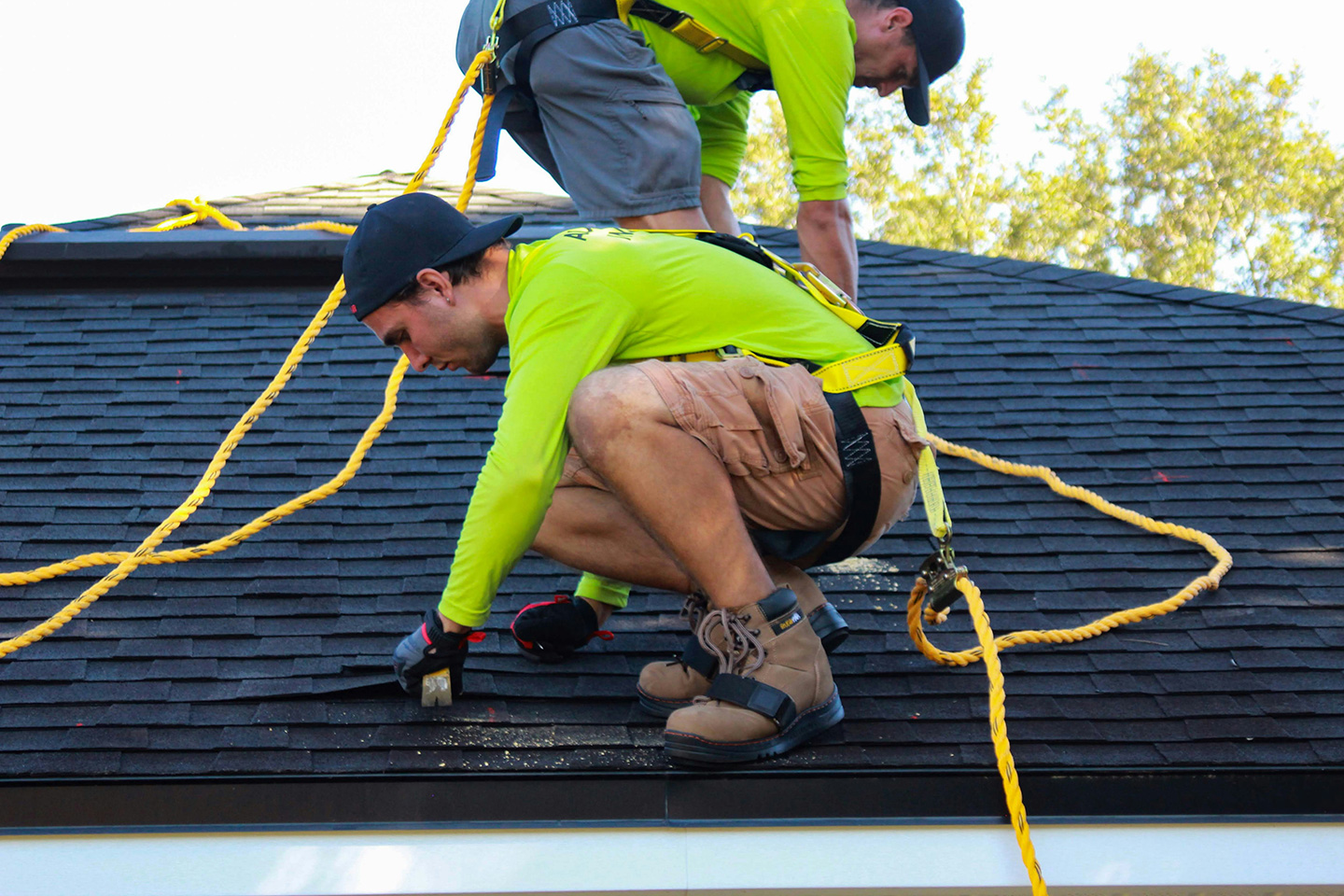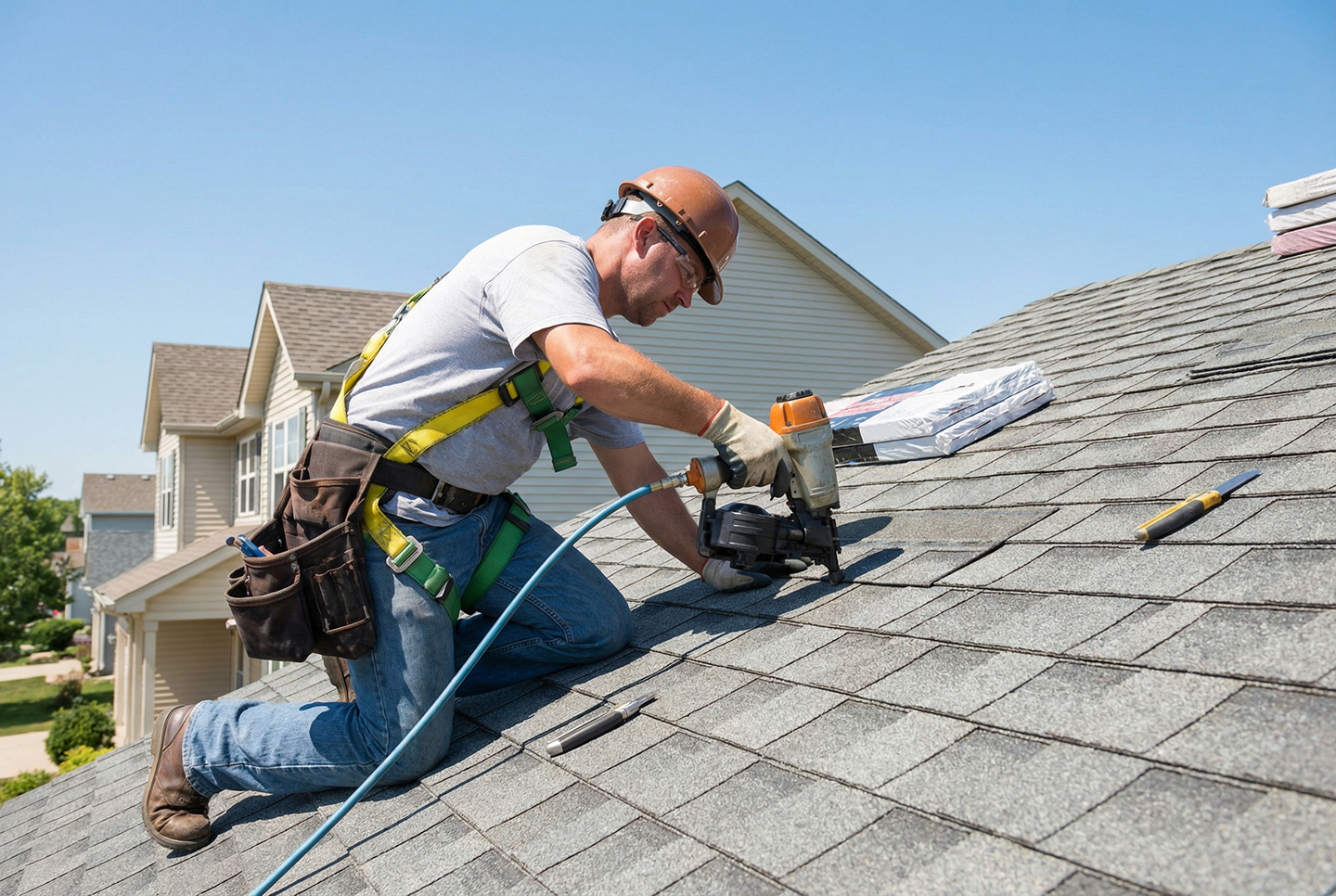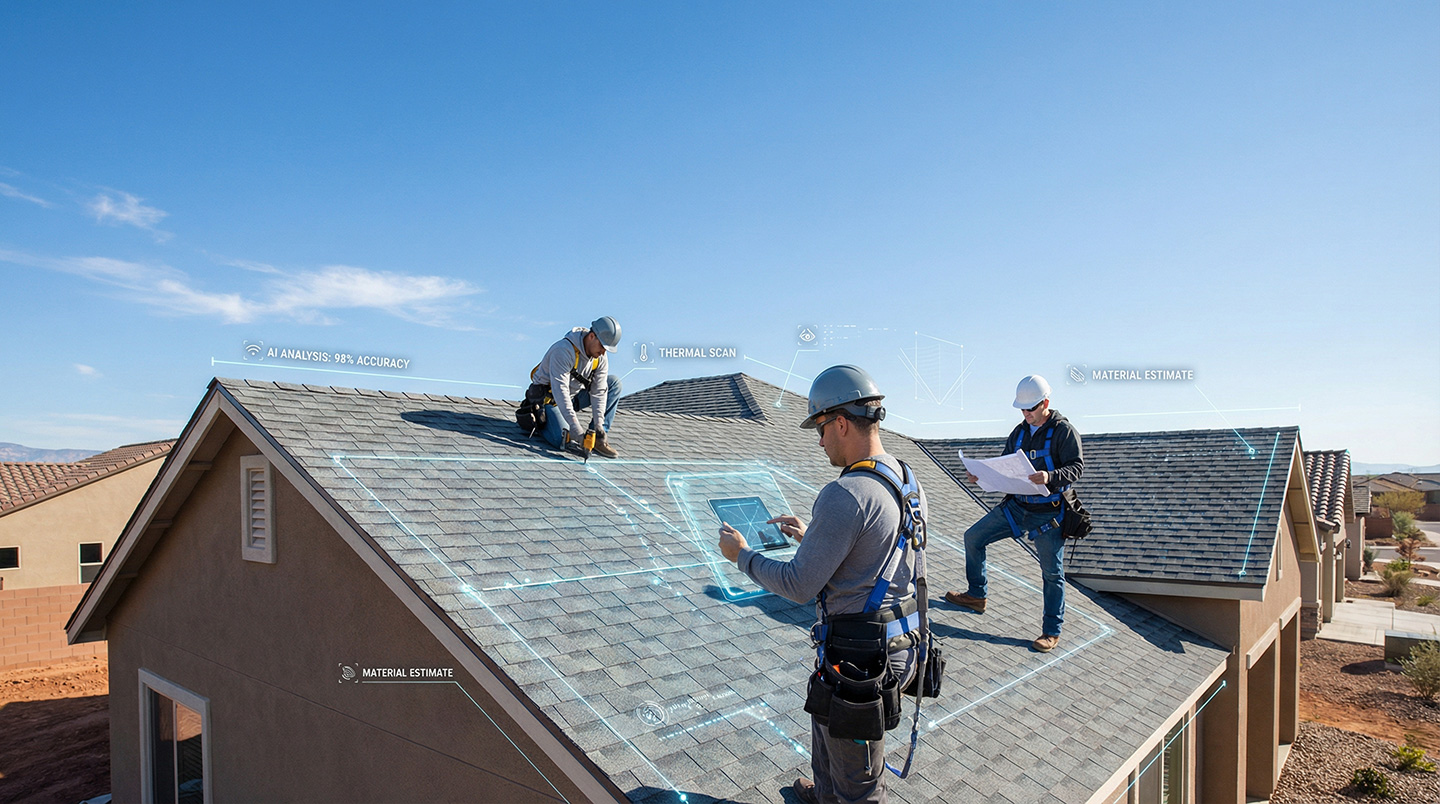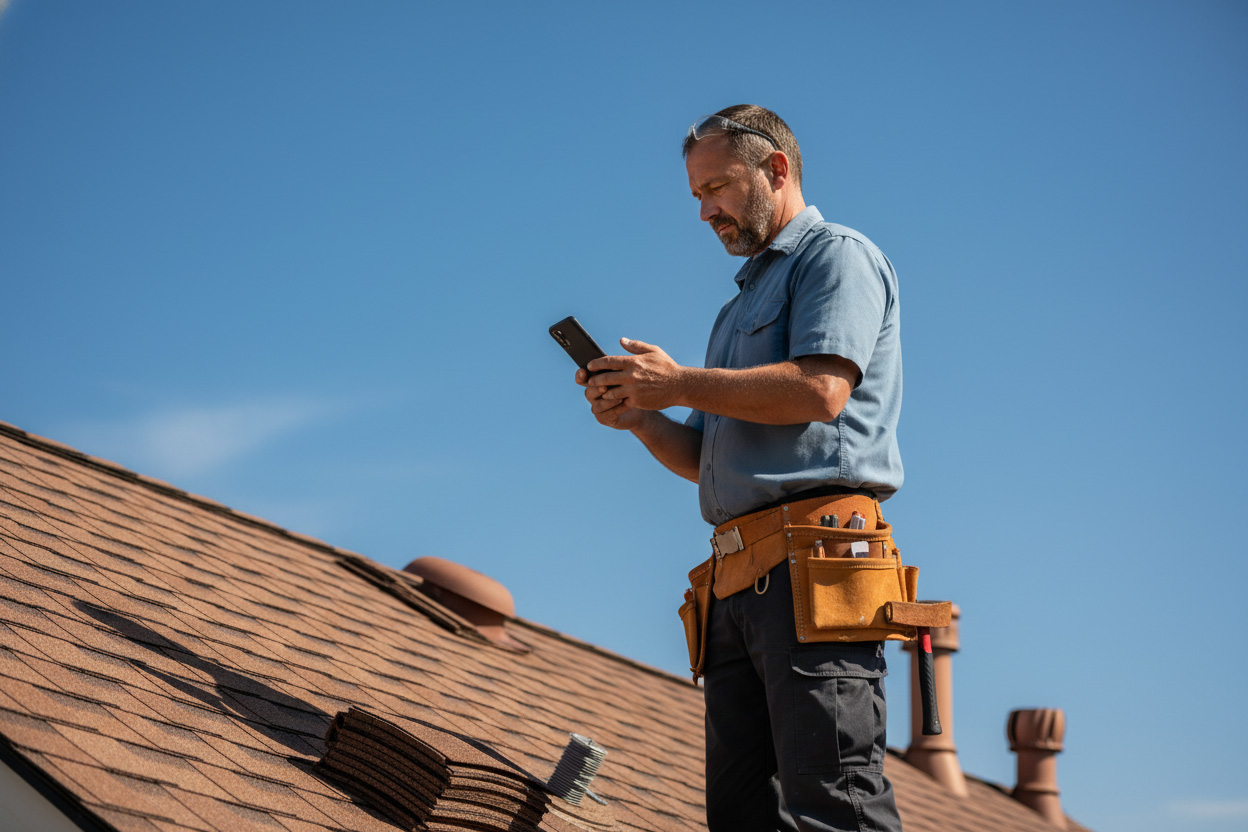The roofing industry faces unprecedented challenges in 2025. Labor shortages, technician retention issues, and mounting cost pressures are forcing contractors to rethink their operations. Meanwhile, changing customer expectations and technology that doesn’t interoperate create additional hurdles for growth. Success now depends on choosing the right customer relationship management (CRM) platform that can handle complex roofing projects while streamlining your entire workflow.
Our research team conducted a comprehensive study of the top roofing CRM platforms in the United States from January through August 2025. We analyzed 47 different systems in our evaluation, which examined the following criteria:
- Usability & Interface Design (25%) – How intuitive and user-friendly the platform is for roofing teams.
- Mobile Capabilities (20%) – Quality and functionality of mobile applications for field crews.
- Project Management Features (18%) – Tools for managing complex roofing projects from estimate to completion.
- Integration Options (15%) – Ability to connect with other business tools and systems.
- Customer Portal & Communication (12%) – Self-service options and automated customer updates.
- Pricing Value (10%) – Cost-effectiveness relative to features offered.
Our team rank-ordered all platforms and selected the best roofing CRMs for 2025 to include in the table below. Following the table, we provide a more detailed analysis of each platform, summaries of customer reviews, and advice for choosing the right roofing CRM for your business.
Best Roofing CRM Platforms 2025
| Platform | Usability Score | Integrations | Customer Portal | Pricing | Specialty |
| 1. Zuper | 9.4/10 | 60+ | Yes | $$$ | Configurable workflows for project-based roofing |
| 2. JobNimbus | 8.7/10 | 25+ | Limited | $$ | Simple CRM with basic project tracking |
| 3. AccuLynx | 8.2/10 | 15+ | Yes | $$$$ | Insurance restoration focus |
| 4. Roofr | 8.8/10 | 12+ | No | $$ | Aerial measurement and proposals |
| 5. SumoQuote | 7.9/10 | 8+ | Limited | $ | Budget-friendly estimating |
| 6. CompanyCam | 8.5/10 | 20+ | No | $$ | Photo documentation and communication |
| 7. Contractor Foreman | 7.6/10 | 10+ | Yes | $$$ | Multi-trade project management |
1. Zuper, Best for Intelligent Project Management
Zuper stands out as the most comprehensive solution for roofing contractors managing complex, multi-phase projects. The platform’s configurable workflows and no-code automation capabilities allow roofing businesses to adapt quickly to changing market demands without requiring technical expertise. Its mobile application maintains full functionality even in offline conditions, which is crucial for roofing teams working in areas with poor connectivity.
The platform’s strength lies in its ability to handle the unique challenges of project-based roofing work, from initial estimates through final invoicing and everything in between. Zuper’s customer portal provides real-time project visibility, automated progress updates, and seamless communication channels that significantly improve client satisfaction. The system’s 60+ integrations allow contractors to build a technology stack that scales with their business needs.
| Summary of Online Reviews |
| Zuper users consistently praise the platform’s “ease of use” and “comprehensive feature set.” Teams appreciate that the mobile app “keeps crews connected” even on remote job sites. They also love that the customer portal has “dramatically reduced calls,” making back office workflows more efficient. |
2. JobNimbus, Best for Small Business Simplicity
JobNimbus has established itself as a recognizable name in the roofing industry, offering a cloud-based CRM solution designed for contractors. It provides solid basic project tracking with file storage and photo management capabilities. The platform offers straightforward lead capture and basic nurturing workflows, helping contractors track prospects through the sales funnel. It has over 20 integrations available with popular tools like QuickBooks, Google Calendar, and various marketing platforms.
In terms of usability, many users report that JobNimbus feels dated compared to modern software solutions, with a learning curve that can slow team adoption. The platform lacks sophisticated workflow automation, requiring manual processes for many routine tasks that could be streamlined. As roofing businesses grow, JobNimbus can become restrictive, particularly for companies managing multiple project types or expanding into commercial work.
| Summary of Online Reviews |
| JobNimbus customers say the platform is “easy to use for basic project tracking,” and they love that it “helps organize job photos and documents.” They report that the interface “feels outdated and clunky,” and there are “limited customization options” for specific workflows. Overall, they say it’s “expensive for what you get” compared to alternatives. |
3. AccuLynx, Best for Insurance Restoration Jobs
AccuLynx positions itself as a roofing-specific CRM with industry-tailored features. The platform offers solid basic functionality for smaller operations but shows limitations when scaling complex projects. AccuLynx provides decent job management capabilities with built-in estimating tools. The platform includes basic mobile access and integrates with popular accounting software. Customer reviews highlight the platform’s roofing-specific templates and measurement tools as helpful starting points. AccuLynx also makes it easy to create and manage insurance claims for restoration jobs.
Customers describe AccuLynx’s workflows as “rigid,” complaining that they don’t adapt to unique business processes. The mobile app is flaky in remote areas, and there is no offline mode to ensure continuous connectivity. The platform also has higher per-user costs than other options on our list.
| Summary of Online Reviews |
| AccuLynx users appreciate the platform’s “industry focus” and insurance claim capabilities, but are frustrated with its “limited customization options.” They love the “roofing-specific templates” but complain about AccuLynx’s “mobile app reliability issues” as well as the “higher per-user costs.” |
4. Roofr, Best for Aerial Measurement and Proposals
Roofr CRM has established itself as a recognizable name in roofing software, particularly for its aerial measurement tools and proposal features. Roofr excels at creating professional estimates, automatically pulling property measurements from aerial imagery. It also offers a visual sales pipeline interface that helps track leads through different stages, with automated follow-up reminders that users consistently praise in reviews. It has a basic mobile app that lets field teams access job information and update statuses, though functionality becomes limited without internet connectivity.
Roofr treats each job as a single transaction rather than a multi-phase project. This creates problems for commercial roofing jobs requiring milestone tracking, dependency management, and progressive billing. With only 15+ integrations available, Roofr struggles to connect with specialized roofing tools, accounting systems, and supply chain platforms that established contractors rely on.
| Summary of Online Reviews |
| Roofr customers like the “easy estimate creation” with aerial measurements, and the “clean interface” that new users pick up quickly. They report that the platform “doesn’t handle multi-phase projects well” and that the “mobile app crashes when offline,” limiting field operations in remote areas. |
5. SumoQuote, Best for Budget-Friendly Estimating
SumoQuote is a software solution for roofing contractors. It offers a straightforward interface that’s relatively easy to navigate for users new to CRM systems, and the learning curve is manageable for small teams. The platform handles standard estimate creation adequately, with templates for common roofing projects and basic material calculations. It has QuickBooks integration and basic email marketing capabilities. In terms of per-user costs, it’s also a relatively inexpensive platform compared to other options on this list.
Customer reviews consistently highlight SumoQuote’s mobile limitations. The mobile app lacks robust offline functionality, creating problems for field teams working in areas with poor connectivity. For complex roofing projects spanning multiple phases, SumoQuote falls short. The platform lacks milestone tracking, dependency management, and budget alerting features essential for large commercial or industrial roofing projects. It also requires significant manual input for routine tasks. There’s no workflow automation for follow-ups, scheduling, or customer communications, forcing teams to handle these processes manually. The limited customer portal means all project updates, scheduling changes, and communications must flow through your office staff, creating bottlenecks and reducing customer satisfaction.
| Summary of Online Reviews |
| SumoQuote users say it “cuts estimating time in half” and that the “pricing is fair for what you get,” especially for smaller teams. They report that “mobile access is frustrating,” and the platform “can’t handle projects with multiple phases.” It also has “limited reporting,” making it hard to track team performance. |
6. CompanyCam, Best for Photo Documentation and Communication
CompanyCam built its reputation as a photo documentation platform that expanded into CRM functionality. CompanyCam excels at photo organization and project visualization. The platform automatically organizes photos by location and date, making it easy to track project progress and document completed work for customers. The timeline feature provides a chronological view of project activities, helping teams understand project evolution and identify potential issues early.
CompanyCam lacks the comprehensive project management tools essential for multi-phase roofing projects. There’s no built-in contract management, limited financial tracking, and minimal workflow automation. For roofing businesses handling commercial projects or managing multiple crews, these gaps become significant operational barriers.
| Summary of Online Reviews |
| CompanyCam customers consistently highlight its “photo management capabilities” and “ease of use.” Many users are frustrated that it has “limited project management features” and that it “lacks invoicing capabilities.” They report that, for growing businesses, CompanyCam becomes “insufficient for complex project coordination.” |
7. Contractor Foreman, Best for Multi-Trade Project Management
Contractor Foreman is a platform targeting multi-trade contracting businesses. The platform excels at basic job scheduling and calendar management. Users consistently praise the visual timeline view for tracking multiple roofing projects simultaneously. Built-in expense tracking helps contractors monitor material costs and labor hours across different job sites. The reporting dashboard provides clear profit margins per project. Centralized file management keeps contracts, permits, and photos organized by project. The mobile app allows field teams to upload images and documents directly from job sites.
Multiple users report that the mobile app crashes frequently and lacks offline functionality, which is critical for roofing teams working in areas with poor cell coverage. With just over 10 integrations available, many contractors struggle to connect their existing accounting, inventory, or marketing tools. The customer portal is basic compared to modern alternatives. Clients can’t track project progress in real time or receive automated updates.
| Summary of Online Reviews |
| Contractor Foreman users say it’s “great for basic project management” as well as “keeping track of multiple jobs.” The cost tracking features helped them “identify where they were losing money.” They complain that the “mobile app is unreliable,” and say their customers have to “constantly ask for project updates” because of the limited customer portal. |
What to Look for in the Best Roofing CRM in 2025
The following features and characteristics are crucial for ensuring your CRM will grow with your roofing business and support your more complex operations. The best roofing CRM in 2025 will have:
A Mobile-First Design That Works Offline
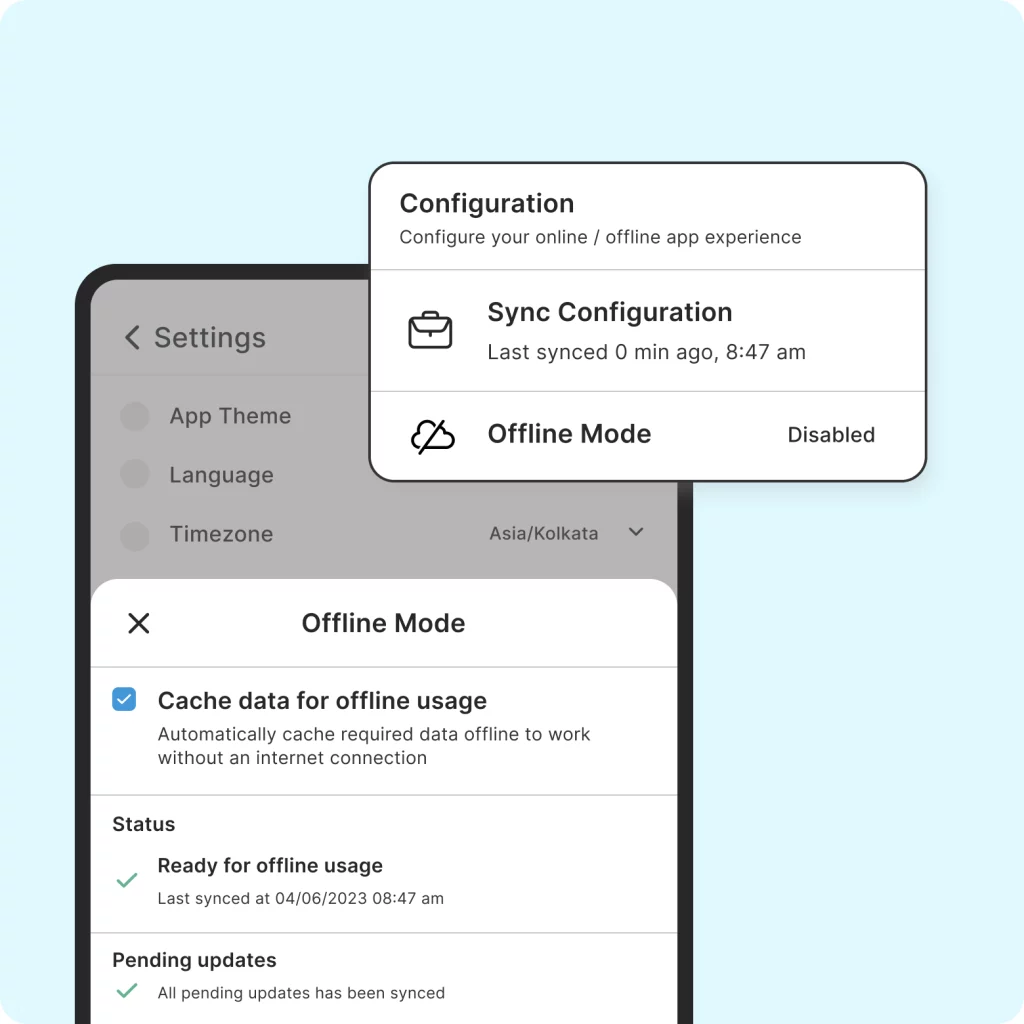
Your field teams need technology that functions reliably, even when cellular coverage is spotty on job sites. The best roofing CRMs provide full functionality through intuitive mobile apps that sync automatically when connectivity returns. Look for platforms that allow technicians to complete estimates, capture photos, collect signatures, and process payments without requiring constant internet access.
Key Mobile Features Checklist:
- Offline capability with automatic sync
- Photo and document capture
- Digital signature collection
- Real-time GPS tracking
- Push notifications for urgent updates
Comprehensive Project Management Capabilities
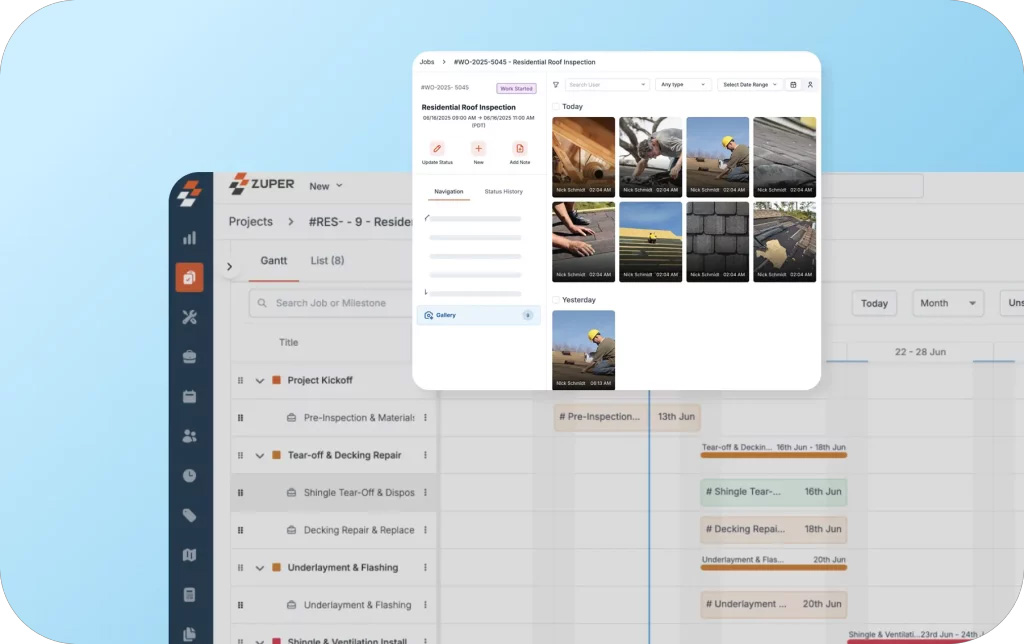
Unlike simple service calls, roofing projects involve multiple phases, team coordination, and extended timelines. Your CRM should handle complex project workflows from initial estimate through final inspection and warranty tracking.
| Project Phase | CRM Requirements |
| Lead Generation | Automated follow-up sequences |
| Estimation | Photo markup and measurement tools |
| Contract Management | Digital signatures and milestone tracking |
| Material Ordering | Inventory integration and vendor management |
| Installation | Progress updates and quality photos |
| Final Inspection | Completion documentation and customer sign-off |
| Follow-up | Warranty tracking and maintenance reminder |
Seamless Integration Ecosystem
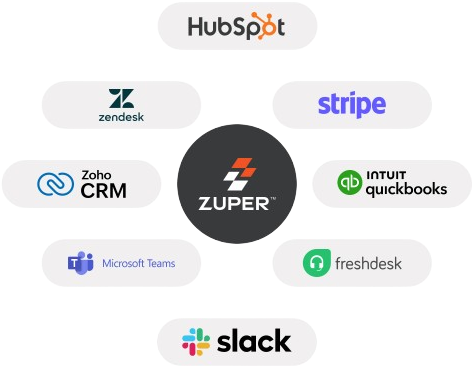
Modern roofing businesses rely on multiple software tools. Your CRM should integrate effortlessly with accounting software, material suppliers, weather services, and marketing platforms. The most advanced systems offer 60+ pre-built integrations that can be configured without technical expertise.
Customer Communication Excellence
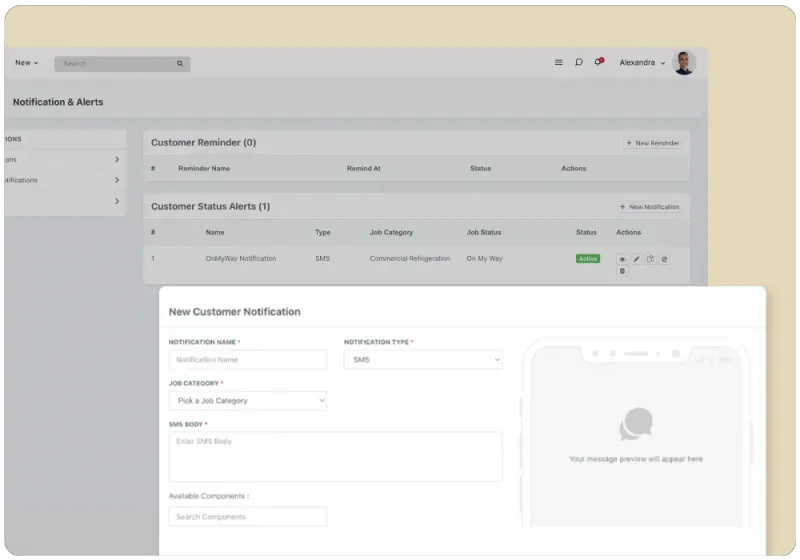
Today’s homeowners expect transparency and regular updates throughout their roofing project. Look for CRMs that provide automated SMS updates, estimated arrival times, and customer portals where clients can track progress in real time.
